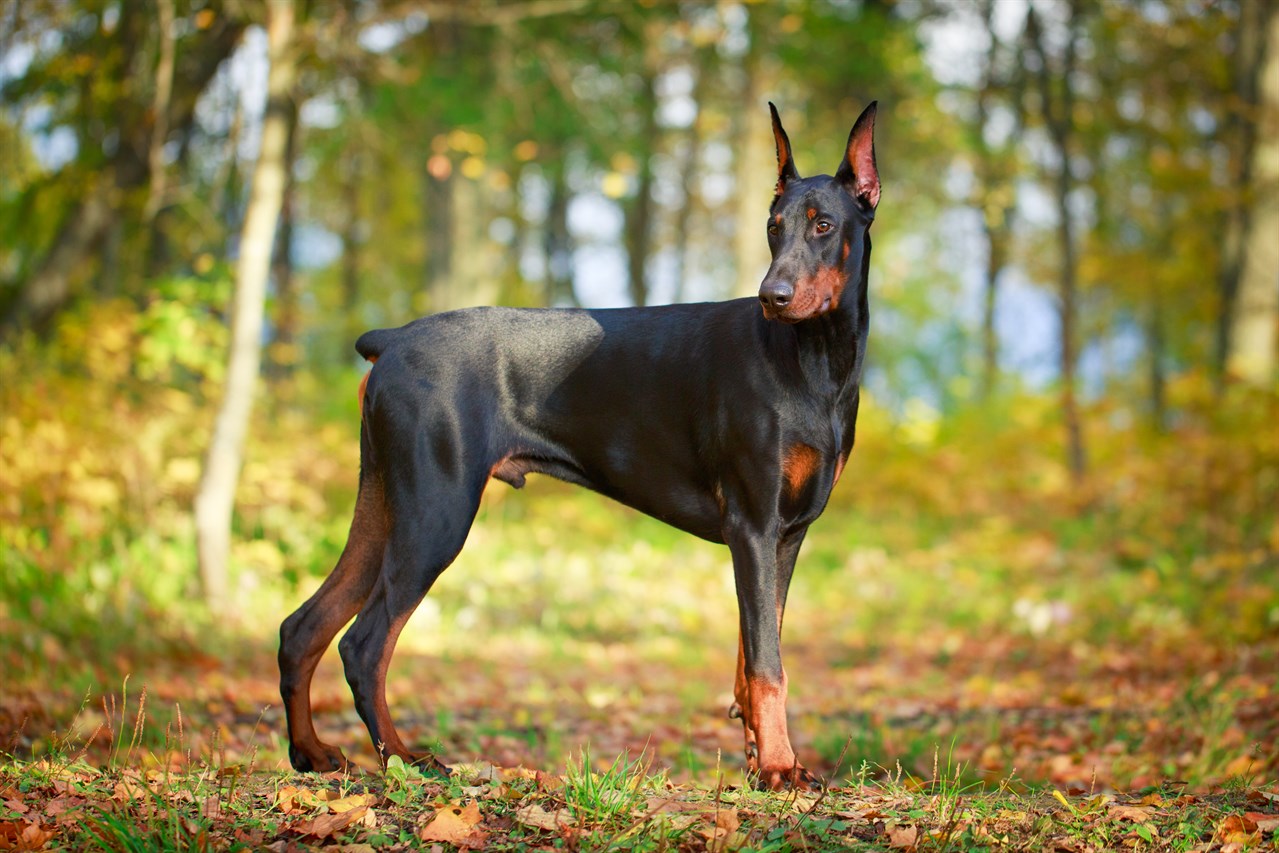The Temperament of the Dobermann: Loyalty, Intelligence, and Alertness

Dobermanns are renowned for their unique temperament, which is a complex blend of loyalty, intelligence, and alertness. Understanding their temperament is crucial for potential owners and anyone considering bringing this breed into their lives.
Loyalty and Devotion
Dobermanns are intensely loyal dogs. They often form strong bonds with their owners and become incredibly devoted to their families. This loyalty translates into a protective instinct, and they will do whatever it takes to safeguard their loved ones.
Intelligence and Trainability
Among the most intelligent dog breeds, Dobermanns are quick learners. They excel in obedience training and are often used in various working roles due to their ability to understand and execute commands. Their intelligence makes them highly trainable, but it also means they require mental stimulation to prevent boredom.
Alertness and Protective Instincts
Dobermanns have a natural alertness that makes them excellent watchdogs. They are keenly aware of their surroundings and are quick to alert their owners to any potential threats or intruders. This alertness, combined with their protective instincts, makes them effective guard dogs when properly trained.
Energetic and Active
Dobermanns are an active breed. They have high energy levels and require regular exercise to stay healthy and content. Without adequate physical and mental stimulation, they may become restless and engage in destructive behaviours.
Socialisation and Social Nature
Proper socialisation from a young age is essential for Dobermanns. When well-socialised, they tend to be confident and sociable with people and other animals. However, neglecting socialisation can lead to shyness or aggression.
What is the Temperament of a Doberman in Australia?
The temperament of a Doberman in Australia is consistent with Dobermans worldwide. They are known for their loyalty, intelligence, and protective instincts. The Australian climate and environment can influence their exercise needs and lifestyle, but their core temperament traits remain the same.
What is the Temper of a Doberman?
The temper of a Doberman is often described as confident, alert, and protective. They are known for their loyalty and strong bond with their families. They are also intelligent and quick learners, which can make them obedient and responsive to training.
Is a Doberman Aggressive?
Dobermans are not inherently aggressive dogs. However, like any breed, their behaviour can be influenced by factors such as genetics, upbringing, socialisation, and training. Properly socialised and trained Dobermans are typically confident and protective without being excessively aggressive.
Which is More Aggressive: Doberman or German Shepherd?
Comparing the aggression of Dobermans and German Shepherds is not straightforward, as both breeds can exhibit varying levels of aggression depending on individual temperament and upbringing. Neither breed is inherently more aggressive than the other. Both Dobermans and German Shepherds can make excellent family dogs and working dogs when properly socialised and trained.
Why Don't Dobermans Like to Cuddle?
It's not accurate to say that Dobermans don't like to cuddle. Each Doberman has its unique personality, and some may enjoy cuddling and physical affection, while others may be more reserved. The perception that Dobermans are less inclined to cuddle may be due to their alert and protective nature, which can make them more focused on their surroundings. However, many Dobermans form strong bonds with their owners and do enjoy physical closeness and affection.
Dobermann puppies for sale
- Find Dobermann puppies for sale in ACT
- Find Dobermann puppies for sale in NSW
- Find Dobermann puppies for sale in NT
- Find Dobermann puppies for sale in QLD
- Find Dobermann puppies for sale in SA
- Find Dobermann puppies for sale in TAS
- Find Dobermann puppies for sale in VIC
- Find Dobermann puppies for sale in WA